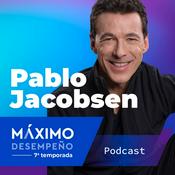9 episodios

Ep 9 - "Everything is Connected" with Sheila Watt-Cloutier
07/6/2019
In the ninth episode of the "Capitalism, Climate Change, and Culture" podcast series from GMU Cultural Studies, Christine Rosenfeld talks with Sheila Watt-Cloutier, an Inuit advocate who has worked on issues related to climate change and Persistent Organic Pollutants. Watt-Cloutier was a Nobel nominee and has receive the prestigious Right Livelihood Award for her work addressing climate change as a question of collective human rights. Her memoir The Right to Be Cold narrates her life, beginning as a youth in a remote Inuit village.Watt-Cloutier and Rosenfeld discuss some ways to highlight the cultural and human dimensions of climate change, the value of understanding climate change as an issue of collective human rights, and what will be lost if decisive action is not taken immediately.This podcast series is associated with George Mason University Cultural Studies' Colloquium Series. This year's series is called "Capitalism, Climate Change, and Culture." The industrial revolution liberated human beings from the cycles of nature — or so it once seemed. It turns out that greenhouse gases, a natural byproduct of coal- and petroleum-burning industries, lead to global warming, and that we are now locked into a long warming trend: a trend that will raise sea levels, enhance the occurrence of extreme weather events, and ultimately could threaten food supplies and other vital supports for modern civilization. This podcast series examines the cultural and political-economic dimensions of our ongoing, slow-moving climate crisis. We engage experts from a variety of fields and disciplines to ask questions about capitalism and the environment. How did we get into this mess? How bad is it? Where do we go from here? What sorts of steps might mitigate the damage — or perhaps someday reverse it? At stake are deep questions about humanity’s place in and relationship to nature — and what our systems of governance, production, and distribution might look like in the future.Learn more about the Cultural Studies Program at GMU: http://culturalstudies.gmu.eduRead more on Sheila Watt-Cloutier's Right Livelihood Award profile. Interview: Christine RosenfeldProduction and Editing: Richard Todd StaffordColloquium Organizer: Roger LancasterMusic: Kevin MacLeod "Acid Trumpet," used under a Creative Commons Attribution 3.0 Unported License

Ep 8 - "Just Urban Futures" with Ashley Dawson
04/6/2019
In the eighth episode of the "Capitalism, Climate Change, and Culture" podcast series from GMU Cultural Studies, Eric Ross talks with Ashley Dawson, who has written about climate change in The Boston Review, The Guardian, In These Times, Jacobin, and elsewhere. He's the author of the books Extreme Cities: The Peril and Promise of Urban Life in the Age of Climate Change, Extinction: A Radical History, and others. Ross and Dawson discuss what we can learn about climate politics by paying attention to cities and urban social movements. This podcast series is associated with George Mason University Cultural Studies' Colloquium Series. This year's series is called "Capitalism, Climate Change, and Culture." The industrial revolution liberated human beings from the cycles of nature — or so it once seemed. It turns out that greenhouse gases, a natural byproduct of coal- and petroleum-burning industries, lead to global warming, and that we are now locked into a long warming trend: a trend that will raise sea levels, enhance the occurrence of extreme weather events, and ultimately could threaten food supplies and other vital supports for modern civilization. This podcast series examines the cultural and political-economic dimensions of our ongoing, slow-moving climate crisis. We engage experts from a variety of fields and disciplines to ask questions about capitalism and the environment. How did we get into this mess? How bad is it? Where do we go from here? What sorts of steps might mitigate the damage — or perhaps someday reverse it? At stake are deep questions about humanity’s place in and relationship to nature — and what our systems of governance, production, and distribution might look like in the future. Learn more about the Cultural Studies Program at GMU: http://culturalstudies.gmu.eduLearn more about Ashley Dawson on his faculty page: https://www.gc.cuny.edu/Page-Elements/Academics-Research-Centers-Initiatives/Doctoral-Programs/English/Faculty-by-Field/Ashley-DawsonLearn more about Ashley Dawson on his personal blogsite: https://ashleydawson.info/Interview: Eric RossProduction and Editing: Richard Todd StaffordColloquium Organizer: Roger LancasterMusic: Kevin MacLeod "Acid Trumpet," used under a Creative Commons Attribution 3.0 Unported License.

Ep 7 - "The Storm State" with Christian Parenti
23/5/2019
In the seventh episode of the "Capitalism, Climate Change, and Culture" podcast series from GMU Cultural Studies, Richard Todd Stafford talks with Christian Parenti, who has written about climate change in The New York Times, The London Review of Books, The Nation, Jacobin, Dissent, and elsewhere. Parenti is an associate professor of economics at John Jay College of CUNY. Among others, he's the author of the book Tropic of Chaos: Climate Change and the New Geography of Violence and is working on books about Alexander Hamilton as a political theorist and about the state as an environment-making force. Stafford and Parenti discuss the role of the state in climate adaptation and mitigation. This podcast series is associated with George Mason University Cultural Studies' Colloquium Series. This year's series is called "Capitalism, Climate Change, and Culture." The industrial revolution liberated human beings from the cycles of nature — or so it once seemed. It turns out that greenhouse gases, a natural byproduct of coal- and petroleum-burning industries, lead to global warming, and that we are now locked into a long warming trend: a trend that will raise sea levels, enhance the occurrence of extreme weather events, and ultimately could threaten food supplies and other vital supports for modern civilization. This podcast series examines the cultural and political-economic dimensions of our ongoing, slow-moving climate crisis. We engage experts from a variety of fields and disciplines to ask questions about capitalism and the environment. How did we get into this mess? How bad is it? Where do we go from here? What sorts of steps might mitigate the damage — or perhaps someday reverse it? At stake are deep questions about humanity’s place in and relationship to nature — and what our systems of governance, production, and distribution might look like in the future. — Roger Lancaster, Colloquium Organizer Learn more about the Cultural Studies Program at GMU: http://culturalstudies.gmu.edu Learn more about Christian Parenti: https://www.jjay.cuny.edu/faculty/christian-parenti Music: Kevin MacLeod "Acid Trumpet," used under a Creative Commons Attribution 3.0 Unported License.

Ep 6 - "Planning The Good Anthropocene" with Leigh Phillips
28/4/2019
In the sixth episode of the "Capitalism, Climate Change, and Culture" podcast series from GMU Cultural Studies, Richard Todd Stafford talks with Leigh Phillips, a science and politics writer who may be read in Nature, Scientific American, The Guardian, and Jacobin. He's the author of the books Austerity Ecology and the Collapse Porn Addicts: A Defense of Growth, Progress, Industry and Stuff and, with Michal Rozworski, The People's Republic of Walmart: How the World's Biggest Corporations are Laying the Foundations for Socialism. Stafford and Phillips focus on how Phillips' broader concerns intersect with the arguments he advanced in "Planning the Good Anthropocene," the theme of one of Phillips' widely-shared articles, which was developed further in the penultimate chapter of The People's Republic of Walmart and a lecture he gave at George Mason University. This podcast series is associated with George Mason University Cultural Studies' Colloquium Series. This year's series is called "Capitalism, Climate Change, and Culture." The industrial revolution liberated human beings from the cycles of nature — or so it once seemed. It turns out that greenhouse gases, a natural byproduct of coal- and petroleum-burning industries, lead to global warming, and that we are now locked into a long warming trend: a trend that will raise sea levels, enhance the occurrence of extreme weather events, and ultimately could threaten food supplies and other vital supports for modern civilization. This podcast series examines the cultural and political-economic dimensions of our ongoing, slow-moving climate crisis. We engage experts from a variety of fields and disciplines to ask questions about capitalism and the environment. How did we get into this mess? How bad is it? Where do we go from here? What sorts of steps might mitigate the damage — or perhaps someday reverse it? At stake are deep questions about humanity’s place in and relationship to nature — and what our systems of governance, production, and distribution might look like in the future. — Roger Lancaster, Colloquium Organizer Learn more about the Cultural Studies Program at GMU: http://culturalstudies.gmu.edu Learn more about Leigh Phillips: https://leighphillips.wordpress.com/ Music: Kevin MacLeod "Acid Trumpet," used under a Creative Commons Attribution 3.0 Unported License.

Ep 5 - "Greenwashing Culture" with Toby Miller
14/3/2019
In the fifth episode of the "Capitalism, Climate Change, and Culture" podcast series from GMU Cultural Studies, Pavithra Suresh talks with Toby Miller, renowned cultural studies scholar, and author of Greenwashing Culture (2017), Greenwashing Sport (2017), Greening the Media (2012) with Richard Maxwell, and Technologies of Truth: Cultural Citizenship and the Popular Media (1997), among other books This podcast series is associated with George Mason University Cultural Studies' Colloquium Series. This year's series is called "Capitalism, Climate Change, and Culture." The industrial revolution liberated human beings from the cycles of nature — or so it once seemed. It turns out that greenhouse gases, a natural byproduct of coal- and petroleum-burning industries, lead to global warming, and that we are now locked into a long warming trend: a trend that will raise sea levels, enhance the occurrence of extreme weather events, and ultimately could threaten food supplies and other vital supports for modern civilization. This podcast series examines the cultural and political-economic dimensions of our ongoing, slow-moving climate crisis. We engage experts from a variety of fields and disciplines to ask questions about capitalism and the environment. How did we get into this mess? How bad is it? Where do we go from here? What sorts of steps might mitigate the damage — or perhaps someday reverse it? At stake are deep questions about humanity’s place in and relationship to nature — and what our systems of governance, production, and distribution might look like in the future. — Roger Lancaster, Colloquium Organizer Learn more about the Cultural Studies Program at GMU: http://culturalstudies.gmu.edu Learn more about Toby Miller: https://www.tobymiller.org/ Music: Kevin MacLeod "Acid Trumpet," used under a Creative Commons Attribution 3.0 Unported License. Interview: Pavithra Suresh Audio engineering: Adam Proctor Editing and post-production: Richard Todd Stafford
Más podcasts de Educación
Podcasts a la moda de Educación
Acerca de GMU Cultural Studies Colloquium
Escucha GMU Cultural Studies Colloquium, FIESTA PARA DAÑADOS y muchos más podcasts de todo el mundo con la aplicación de radio.net

Descarga la app gratuita: radio.net
- Añadir radios y podcasts a favoritos
- Transmisión por Wi-Fi y Bluetooth
- Carplay & Android Auto compatible
- Muchas otras funciones de la app
Descarga la app gratuita: radio.net
- Añadir radios y podcasts a favoritos
- Transmisión por Wi-Fi y Bluetooth
- Carplay & Android Auto compatible
- Muchas otras funciones de la app


GMU Cultural Studies Colloquium
Descarga la app,
Escucha.





































